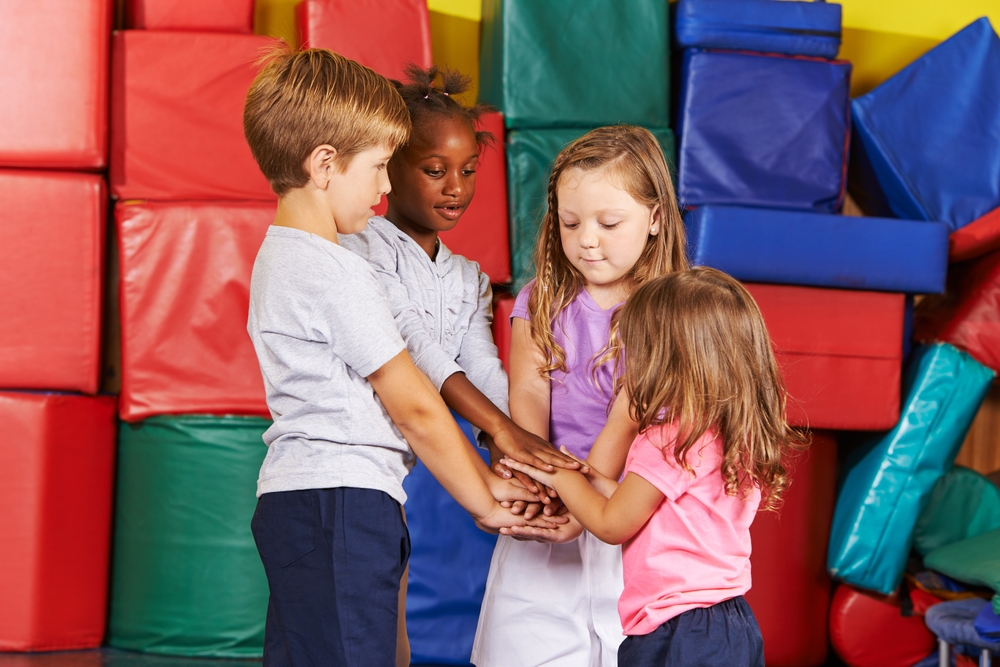
RobertKneschke/Shutterstock
.
There has been surge of interest in social and emotional learning (SEL) over recent decades. Teachers and principals show strong support for SEL, and both school and out-of-school time (OST) settings are implementing SEL programs and practices at increasing rates. SEL programs during school and OST can produce positive benefits for participating youth across a range of important outcomes. These benefits, along with the cost-effectiveness associated with effective SEL programs, have led policymakers to support the SEL movement with increased funding.
As the field has expanded, many definitions and frameworks for SEL have surfaced. For our purposes, SEL is defined according to the Collaborative for Academic, Social and Emotional Learning (CASEL) as “the process through which children and adults acquire and effectively apply the knowledge, attitudes, and skills necessary to understand and manage emotions, set and achieve positive goals, feel and show empathy for others, establish and maintain positive relationships, and make responsible decisions.”
SEL is a field anchored by a large and strong body of research. This research shows that SEL programs in OST settings can help develop the foundational competencies that young people today need to be successful in and out of school, in careers and in life. However, this same research indicates that SEL programming is more effective when it is done intentionally and follows an evidence-based approach.
SEL in OST settings should be done intentionally

Joseph L. Mahoney
OST settings often focus on positive youth development (PYD) and aim to build strengths such as character, citizenship, positive cultural identity, supportive relationships and equitable learning opportunities through active and experiential learning. PYD fits well with the above definition and goals of SEL.
However, when it comes to developing social and emotional competencies, a focus on PYD may, or may not, be intentional. As part of the recent volume, “Social and Emotional Learning in Out-of-School Time,” Dale Blyth describes intentionality as the difference between what is “taught” and “caught” in a youth program. SEL skills can be intentionally and overtly “taught” to students through programs and practices designed for that purpose. Or, they might be “caught” by those students able to deduce the covert learnings conveyed during program activities not explicitly focused on SEL.
Intentionality is critical for students to develop social and emotional competencies. For instance, one large-scale meta-analysis of OST programs found that only those with a combination of sequenced and developmentally appropriate activities, opportunities for active learning and feedback, and a focused and explicit effort to promote specific social and emotional competencies were associated with positive outcomes.
Evidence-based SEL programs are critical
Approaches to SEL are numerous and not all of them have scientific support. Therefore, a program may be intentional about developing SEL but follow an approach that is not evidence based and unlikely to be effective.
Evidence-based SEL approaches are well designed, deliver high-quality training and technical assistance for adults to develop their own SEL competence and effectively model and build these skills in others, and have been rigorously evaluated so that, if implemented well, then specific, positive results are likely to occur for the participants. For example, programmatic approaches to SEL that offer S.A.F.E. features (Sequenced step-by-step training, use Active forms of learning, Focus sufficient time on skill development and have Explicit learning goals) tend to produce positive benefits for participating students on a range of important outcomes.
Although fewer in number than programs for schools (e.g., the CASEL Program Guides), there are evidence-based SEL approaches for OST settings. Some resources are available to help guide OST program staff select the right approach for their setting. For instance, with support from the Wallace Foundation, Stephanie Jones and colleagues developed a guide to SEL programs for children that includes evidence-based programs designed or adaptable for OST settings. Likewise, funding from the Susan Crown Exchange supported the David P. Weikart Center’s research on evidence-based best practices for OST settings serving adolescents.
Assessment and continuous improvement are key to success
Selecting an evidence-based program is critical. But it is equally important to use evidence to assess where students’ and adults’ SEL skills are at, and how they progress toward program goals, as programs are implemented and improved.
Choosing the right assessments and using the data to inform decision making to continuously improve programming are key to success. Fortunately, the area of SEL assessment is now making great strides. A partnership of leading researchers and practitioners exists to advance SEL assessment in pre-K to 12 education. Assessment and improvement tools to measure and improve quality in youth programs are also available.
Finally, to effectively choose, implement, assess and continuously improve evidence-based SEL approaches, OST staff require training. Training to implement many of the approaches described above is available, including online tools and resources to help educators implement SEL programs effectively.
However, we also need to build professional development on SEL into every preservice teacher program. This foundational training will help ensure that all educators, in school and out of school, are able to provide all young people with evidence-based SEL today so that they become healthy and productive adult citizens who contribute positively to the world of tomorrow.
Joseph L. Mahoney is an assistant professor of psychology at the University of Wisconsin-Superior and senior research scientist at the Collaborative for Academic, Social, and Emotional Learning (CASEL) in Chicago. He also collaborates with CASEL to make scientific evidence on social and emotional learning useful for practitioners and used in practice to support high-quality learning environments and positive developmental outcomes.





























